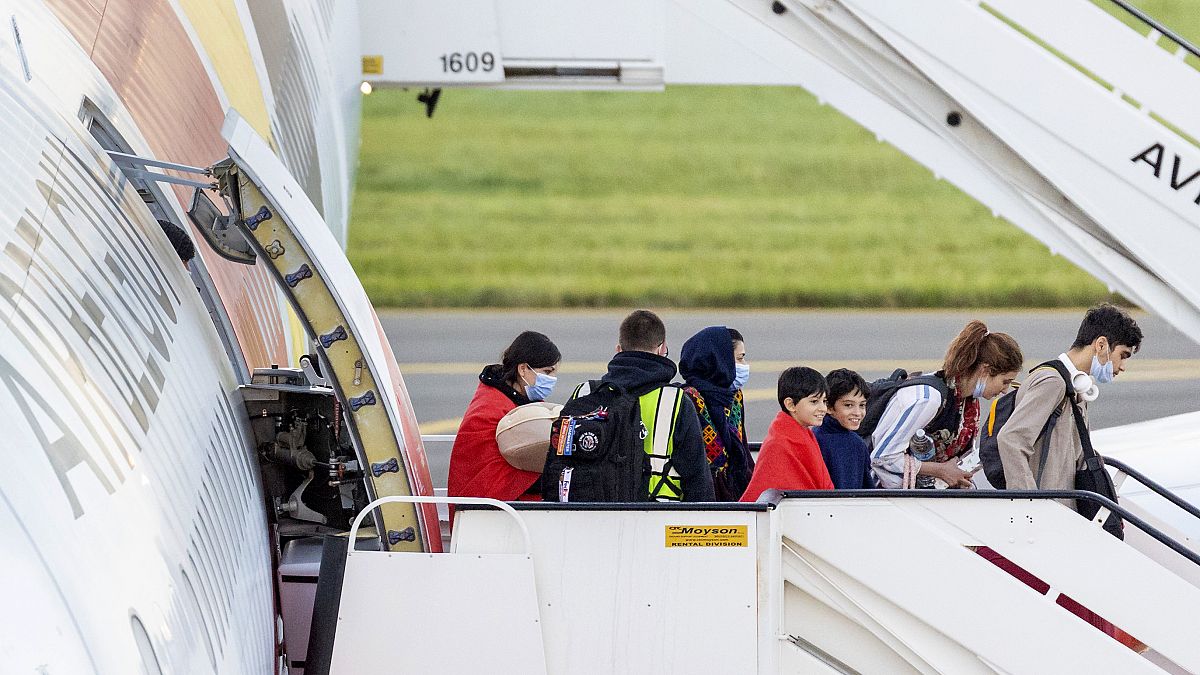Euronews meets with Afghans living in Brussels. While some have obtained citizenship, others are undocumented and now hope that the situation in Afghanistan will force authorities to reconsider their asylum claims.
It started as a family holiday but quickly turned into a nightmare.
After the Taliban takeover of Kabul, Akram, 41, from Brussels, found himself stuck in Afghanistan, with his wife and four young children.
He recalls days of anguish and fear, before finally being evacuated back to Belgium, where he has lived for the last 30 years.
"It was very very dangerous," Akram tells Euronews. "Shots fired in the air, crowd movements at the airport... all this gave us tremendous fear."
Besides obvious security concerns, Akram says the people of Afghanistan fear mostly for their economic well-being, as banks, salaries, and money transfers have been severely impacted by the recent events.
"The people are very dependent on the financial help sent by the Afghan diaspora all over the world," he said. And today, as you know, the money transfer companies like Western Union and Money Gram have ceased their activity in Afghanistan. So the local population is cut from that aid," Akram argues.
Hundreds of thousands of Afghans are still hoping to leave Afghanistan or seeking international protection abroad.
According to the UNHCR, an estimated 500,000 Afghans will flee their country by the end of the year. The vast majority of them will end up staying in neighbouring countries like Pakistan and Iran. Others may decide to try their luck in Europe. For years, Afghan migrants have embarked on the perilous journey through Iran and Turkey before reaching Europe's shores.
There are no official statistics on the exact number of Afghan migrants currently in Europe. Last year, more than 416,000 Afghans sought asylum in the European Union. 10.6 % of them, or 44.000, obtained protection.
Among the unsuccessful applicants is Abdul, a native of Kabul who has spent the last decade seeking asylum in Belgium. All his attempts have failed. But he and other undocumented migrants now hope that the situation in Afghanistan will force authorities to reconsider.
"It gives us some elements to present and to explain how things are. To explain what the reality is and that Afghans need to be protected by Belgium but also by other EU member states," Abdul told Euronews.
Migration authorities in Belgium say a Taliban regime will not automatically result in a successful claim to asylum. And that the cessation of hostilities could actually make the country safer.
The federal government, on the other hand, has temporarily stopped deporting Afghans back to their country. But this could change in the future, argues Sammy Mahdi, the Belgian Secretary of State for Asylum and Migration.
"No one is sent back to a region where there is a danger," Mahdi told Euronews. "At this point Afghanistan is dangerous, so of course no one is sent back to Afghanistan, and it will always be looked at every day, every week to know if the situation gets better or not."
NGOs working on migration now urge EU governments to grant protection to Afghans in order to avoid trapping them in a limbo situation.
According to Sotieta Ngo, Director of CIRÉ (Coordination et Initiatives pour Réfugiés et Étrangers): "This situation results in a lawless situation. People would find themselves without the right to stay in the country. They will be asked to leave the territory, but they will be unable to do so voluntarily and unable to be expelled by the authorities."
"So they are people who are bound to survive clandestinely and in poverty," she concludes
